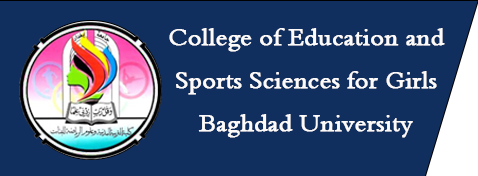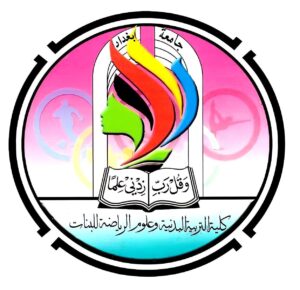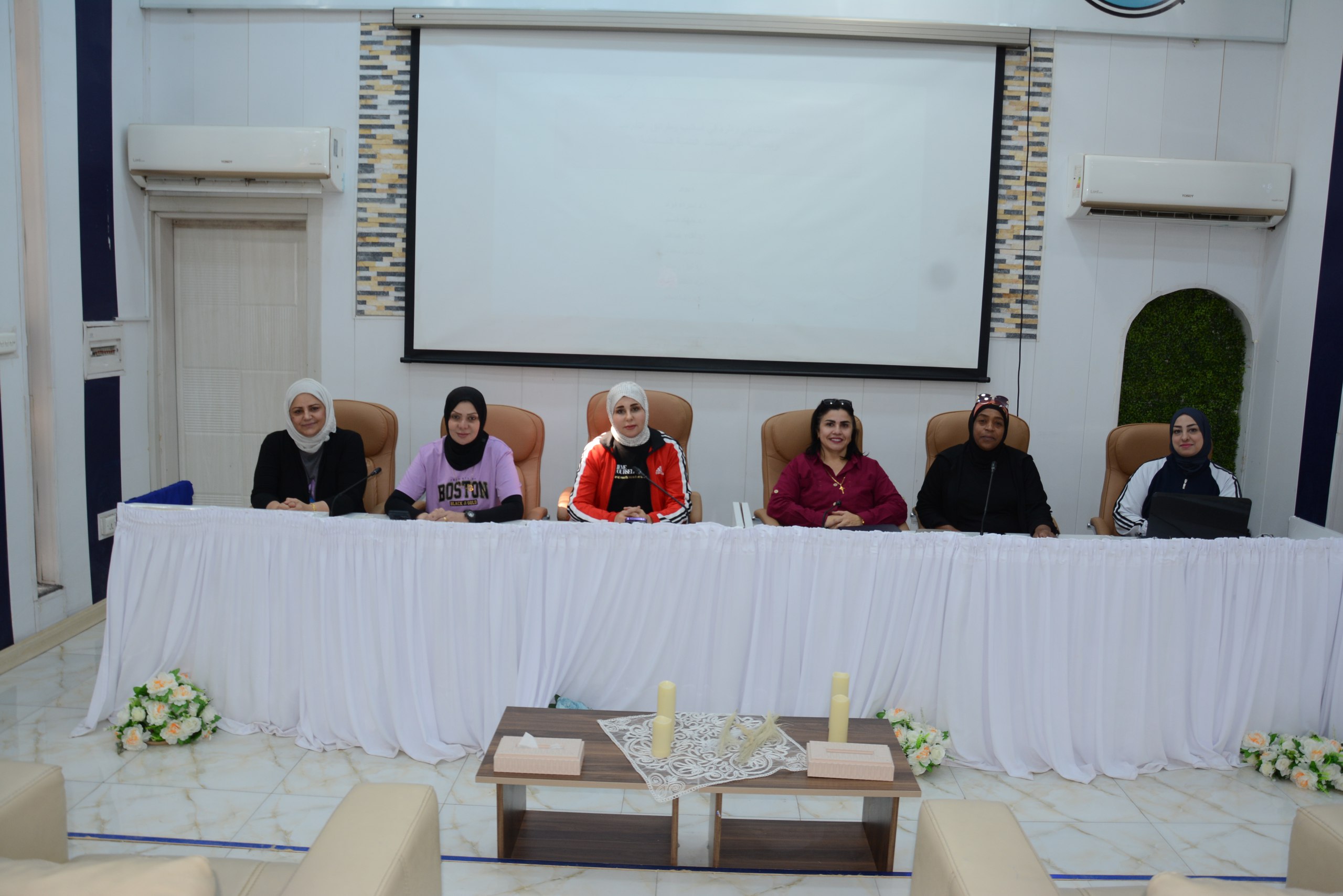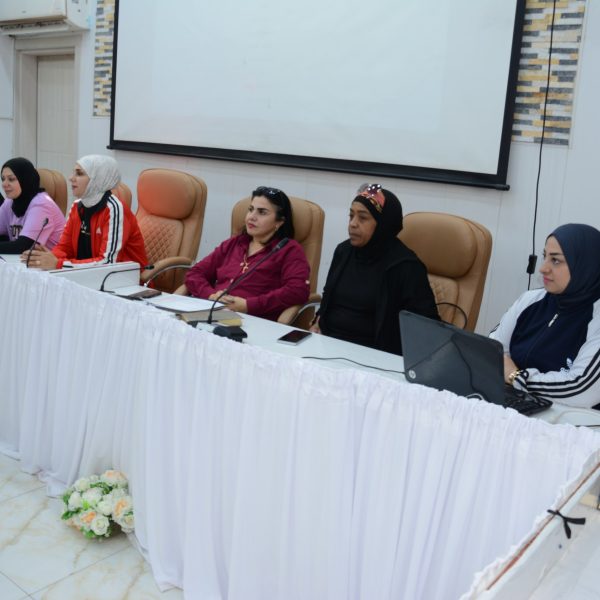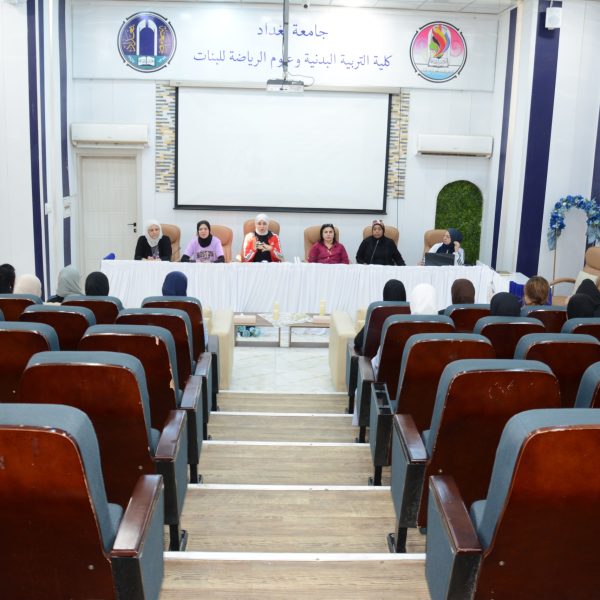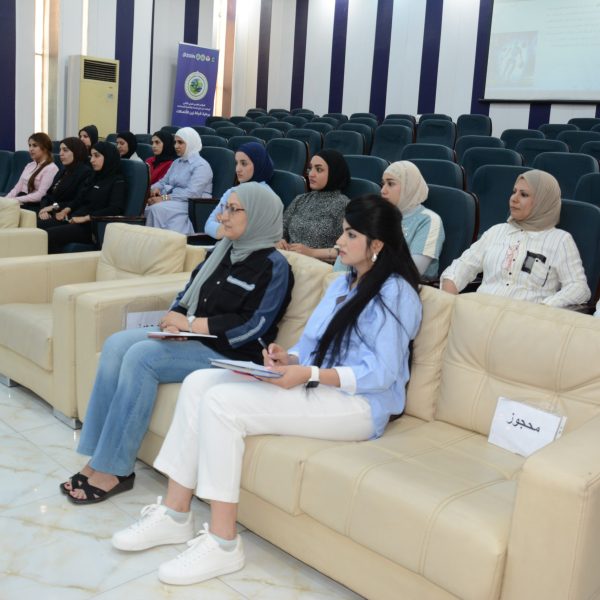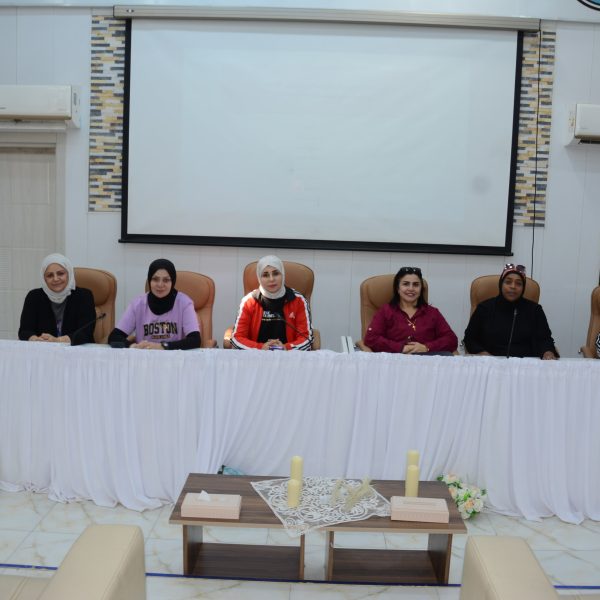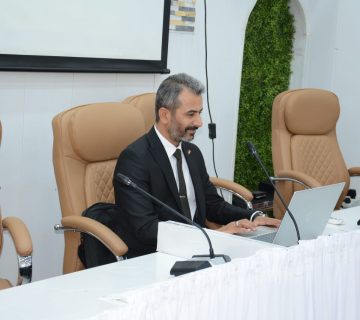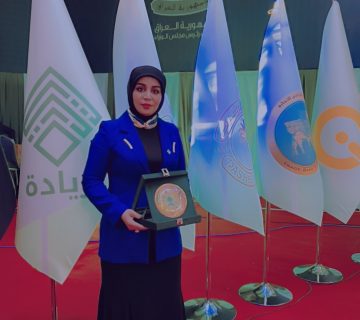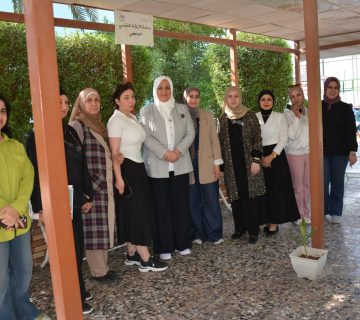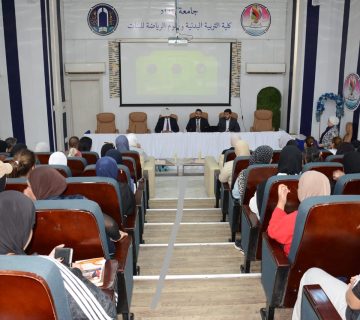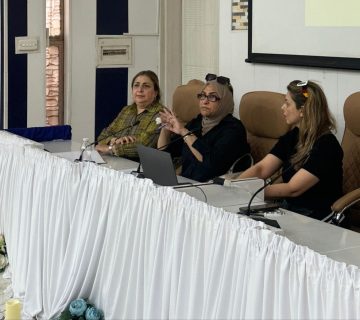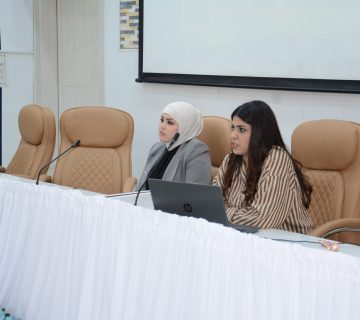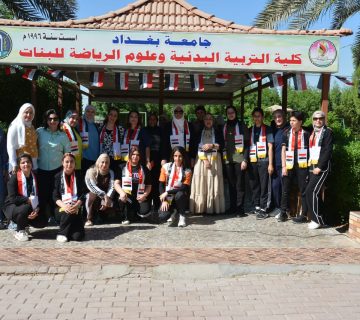The Scientific Affairs Unit at the College of Physical Education and Sports Sciences for Women, University of Baghdad, held a scientific workshop entitled (Artificial Intelligence and Its Impact on Training Methods and Its Reflection on the Goals of Sustainable Development). The workshop was presented by a group of faculty members from the college.
The presenters defined Artificial Intelligence (AI) as a field concerned with creating technological systems capable of learning, reasoning, and making decisions in a way similar to humans. They also highlighted three main types of AI:
-
Narrow AI is designed to perform specific tasks.
-
General AI can successfully perform any intellectual task humans can do.
-
Super intelligent AI, which exhibits full self-awareness and may surpass human intelligence.
The lecturers explained the importance of AI technologies in sports, particularly in training. These include developing personalized training programs tailored to each athlete’s needs, improving skills, analyzing performance, and reducing injuries through data analysis. AI also contributes to training customization, injury prevention and recovery, competitor analysis, simulation and virtual reality, and nutrition and health analysis.
In conclusion, the workshop emphasized that AI plays a crucial role in developing athletic champions from early childhood (ages 4–8) by identifying talents, guiding them during late childhood (ages 9–12), and supporting them through intensive training phases (ages 13–18), leading to professionalism (18 years and above). Each stage relies on data analysis, personalized training, fitness improvement, nutrition management, injury reduction, and competitor study to ensure peak performance.
This workshop aligns with Goal 4 of the United Nations Sustainable Development Goals: Quality Education.
The Scientific Affairs Unit at the College of Physical Education and Sports Sciences for Women, University of Baghdad, held a scientific workshop entitled (Artificial Intelligence and Its Impact on Training Methods and Its Reflection on the Goals of Sustainable Development). The workshop was presented by a group of faculty members from the college.
The presenters defined Artificial Intelligence (AI) as a field concerned with creating technological systems capable of learning, reasoning, and making decisions in a way similar to humans. They also highlighted three main types of AI:
-
Narrow AI is designed to perform specific tasks.
-
General AI can successfully perform any intellectual task humans can do.
-
Super intelligent AI, which exhibits full self-awareness and may surpass human intelligence.
